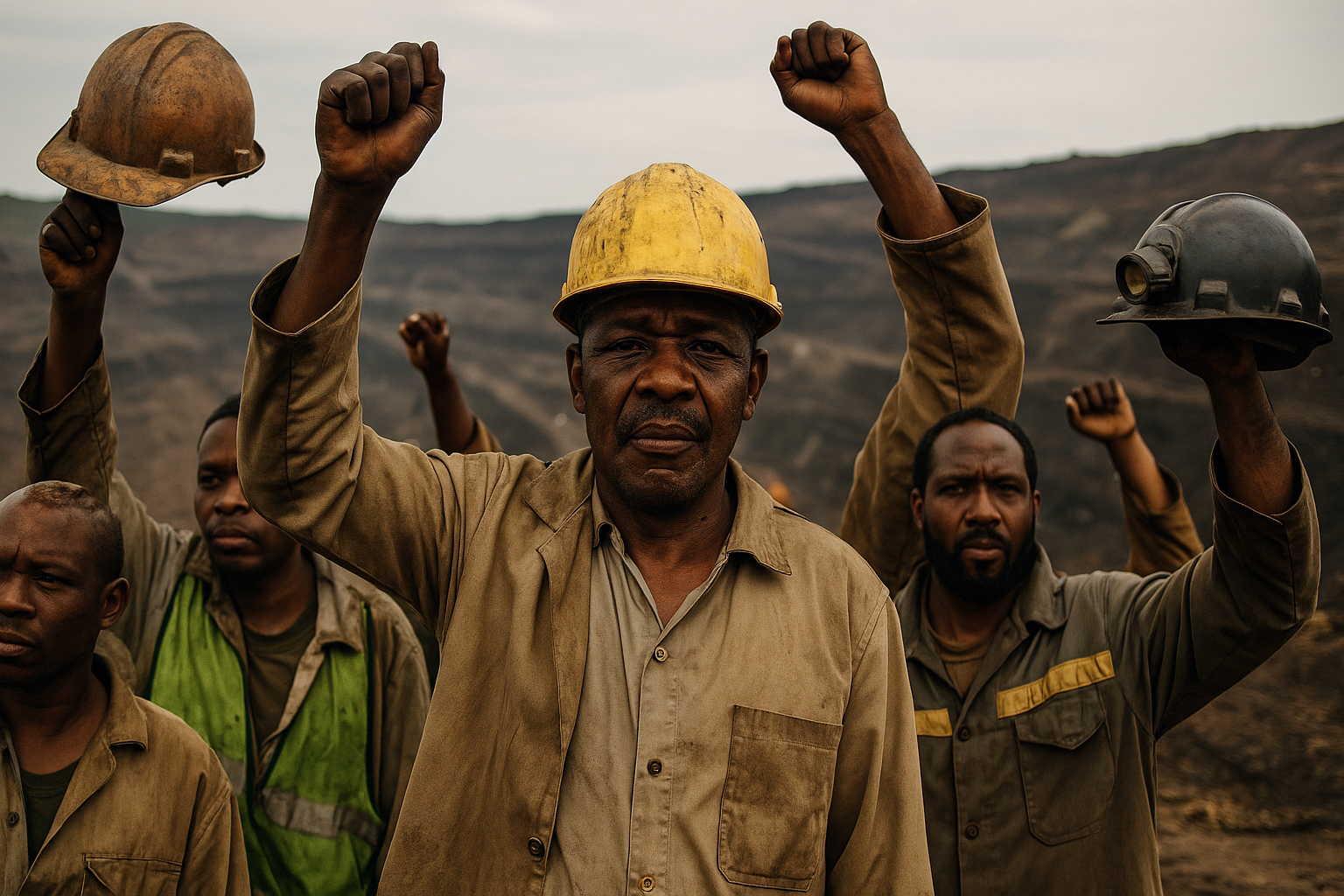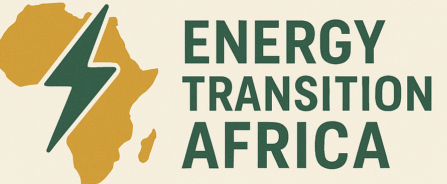Not Just Green Jobs: African Miners Say the ‘Just Transition’ Is Failing Them

"If our bodies fuel the transition, then we deserve a seat at the table."
That was the message from a miner’s union leader in Kolwezi, Democratic Republic of Congo (DRC), during a fiery rally held outside a lithium processing facility earlier this year. His voice, like that of thousands of miners across Africa, is rising above the din of climate summits and corporate ESG reports, demanding a deeper, more honest conversation about what "just transition" really means on the ground.
Across Africa, a green mineral rush is underway. The continent holds some of the largest reserves of cobalt, lithium, manganese, graphite, and rare earths, all critical for powering electric vehicles, wind turbines, and solar panels. From Zimbabwe to Zambia, Ghana to Guinea, governments and investors alike are positioning themselves as indispensable partners in the global energy transition.
But in the scramble for green gold, a vital voice risks being drowned out: that of the workers.
Beyond Buzzwords: Workers Want More Than Jobs
The phrase "just transition" has been repeated so often it risks losing meaning. In many policy circles, it has become shorthand for shifting economies away from fossil fuels while creating green jobs. But to miners and their unions, justice is not a slogan. It is a fight for dignity, safety, fair pay, and real participation.
In South Africa, the National Union of Mineworkers (NUM) has warned that decarbonisation efforts must not come at the cost of working-class livelihoods. While the country's Just Energy Transition Partnership (JETP) is lauded globally, local unions have expressed concern that job losses in coal communities are not being met with equivalent green job creation.
Further north, in the DRC, informal miners known as "creuseurs" labour in perilous conditions for cobalt used in Western EVs. A 2023 Human Rights Watch report found that workers in several cobalt mines in the DRC operate in conditions that fall far below international labour standards. Yet these miners are rarely included in national or corporate transition plans.
Yet despite frameworks like the ILO’s Guidelines for a Just Transition, African miners say they are still excluded from the decision-making process.
We’ve argued before that Africa’s energy transition must centre people, not just technology.
The Safety Crisis No One Talks About
The mining sector has long been one of the deadliest in Africa. In 2023 alone, Zambia recorded over 70 mining-related fatalities. As the demand for green minerals increases, so too does pressure on extraction timelines, often at the expense of safety protocols.
"We can't transition to a cleaner planet on the backs of broken workers," says a union rep from Ghana's manganese belt. He recounts how safety equipment is often outdated, training is minimal, and compensation for injuries is delayed or denied.
A truly just transition must start by protecting the health and lives of those digging the minerals. Yet safety budgets remain a secondary priority in many African mining operations, especially those managed through subcontractors.
Unions Fight Back
Unions across the continent are no longer content with being footnotes in transition strategies. In May 2025, trade union federations from 15 African countries convened in Lusaka to form the "Just Transition Workers Alliance." Their demands: full worker representation in all green mineral deals, binding labour safeguards in mining contracts, and greater investment in worker reskilling.
Their push is gaining ground. In Zimbabwe, following months of negotiation, lithium companies have agreed to a pilot worker transition fund. In South Africa, coal unions have successfully lobbied for worker retraining programmes to be embedded in national climate legislation.
Still, progress is uneven.
In Mozambique, miners protesting job cuts linked to a new graphite deal were met with police force. In Guinea, bauxite miners complain that foreign companies negotiate directly with governments while bypassing local labour unions.
Who Defines "Just"?
At the heart of this struggle lies a bigger question: Who gets to define what is just?
If justice is merely about attracting climate finance or ticking ESG boxes, then the transition risks becoming another extractive cycle. But if it is about empowerment, voice, and equity, then it must be built with those whose labour sustains it.
Policymakers, donors, and climate advocates must move beyond token consultation. They must co-create solutions with workers, from mine shafts to ministry offices.
The Road Ahead: Justice in Practice
The energy transition is inevitable. But justice within it is not.
For Africa, this is more than a moral imperative; it's a strategic one. A transition built on exploited labour is not only unethical; it is unstable. Labour unrest, community protests, and reputational risks will follow projects that ignore worker voices.
There is still time to get it right.
The African Union's forthcoming Green Minerals Strategy offers a chance to enshrine labour justice at the core. National governments can mandate community benefit agreements and worker protections. Investors can insist on labour audits before deploying capital. And unions can keep doing what they do best: organise, demand, and build power from below.
Because the transition will not be just until it belongs to those who live it.
But as we’ve covered in this piece, most climate finance is routed through large infrastructure channels, not grassroots or labour empowerment.

